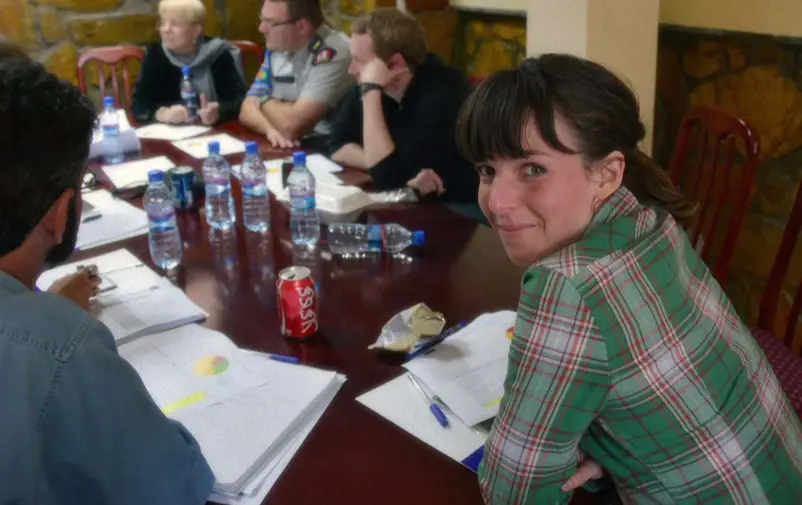
Stipendiemöjlighet för unga ledare inom kvinnor, fred och säkerhet i DRK och Afghanistan1325-stipendiet inrättades till minne av jämställdhetsexperten och fredsbyggaren Zaida Catalán.
The present brief summarizes the research findings presented in the joint Research Brief series and lays out its implications and recommendations for policymakers and practitioners.
Research on the political integration of armed groups makes it clear that there is no single recipe for peaceful political transition. It is not possible to say that a particular sequencing will inevitably lead to sustainable peace, or that formerly armed groups will moderate their claims if certain sets of conditions are obtained. Instead, this body of research supports the view that such transitions involve a multitude of factors and that fine-grained, context-specific analysis is always necessary. Nonetheless, drawing on the findings presented in the joint Research Brief series, as well as the larger body of research on the political integration of armed groups, we present seven recommendations that could help open pathways and clarify options for international engagement on DDR.
This research brief series has been initiated through a collaboration between the Politics After War (PAW) research network, the Folke Bernadotte Academy (FBA), and the United Nations Department of Peace Operations, Office of Rule of Law and Security Institutions: DDR Section (UNDPO/OROLSI/DDR) with the aim to provide research perspectives and scientific evidence on the intersection of DDR and politics with a particular emphasis on the transformative dynamics of armed groups and combatants.
Political Integration and Post-war Elections
Political Engagement by Former Armed Groups Outside Party Politics
Peace Agreements and the Political Integration of Armed Groups
DDR and Post-War Politics: Lessons from Northern Ireland
Rebel Party Organization and Durable Peace after Civil Conflict
Women and Rebel to Party Transitions
Ideological Moderation in Armed Groups Turned Political Parties
Former Armed Groups in power and Post-war Youth Policies
MER FRÅN FÖRSTASIDAN
Är du en ung fredsbyggare i början av din karriär med ett stort engagemang för kvinnor, fred och säkerhet? Har du erfarenhet från arbete inom detta område i Demokratiska Republiken Kongo eller Afghanistan och vill ta ditt engagemang till nästa nivå? Då har du möjligheten att ansöka om 1325-stipendiet för 2026.
2025-11-06 15:28FBA har i uppdrag att bidra till Sveriges bistånd i frågor som rör fred och säkerhet
Läs mer om de länder där vi arbetarTill följd av Rysslands invasion har FBA både ökat och anpassat sitt arbete i Ukraina.
Så här bistår FBAKlara Grenhagen är specialist med fokus på dialog, försoning och fredsprocesser.
Läs mer om våra experter